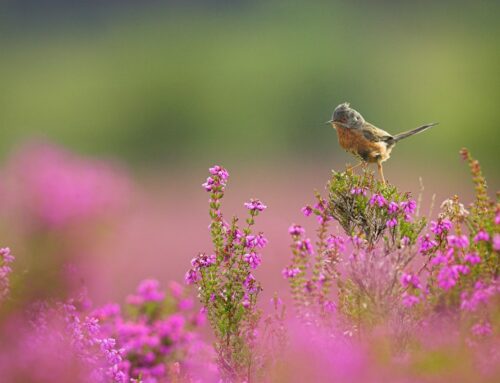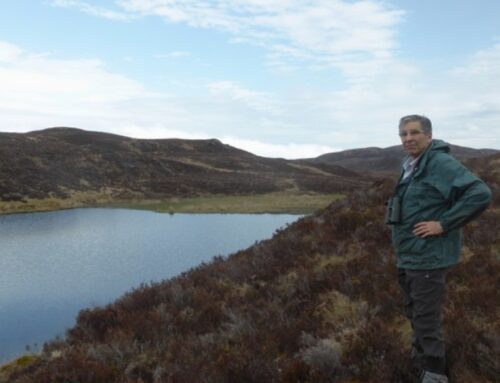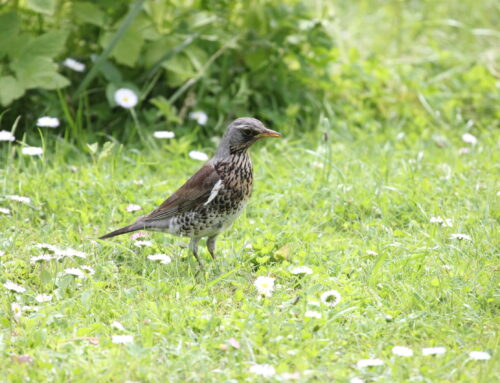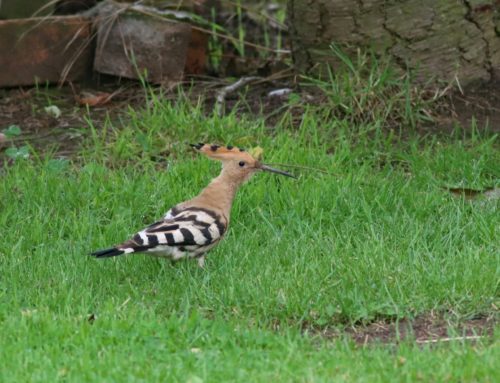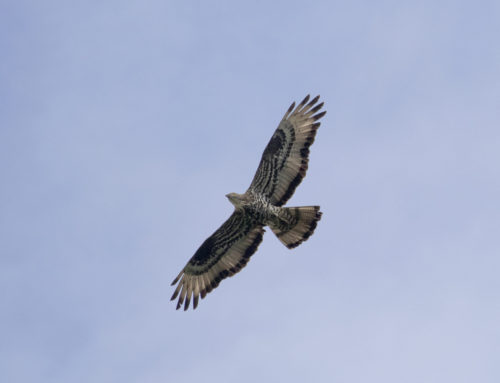32 years in the RBBP: some reflections
The RBBP’s longest-ever serving member, David Stroud, has retired after more than three decades on the Panel. Here David reflects on some of the changes and progression he’s seen over this time.

David receiving the Panel’s parting gift – a Black-throated Diver painted by Chris Rose – from our Chair Dawn Balmer
Thirty-two (!) years on the Panel (mostly representing the Joint Nature Conservation Committee that co-funds the Panel on behalf of the country conservation agencies, but 2019 as an independent member) has given a unique perspective of how its scope and mission have developed. Some of these issues the Panel explored in a recent British Birds paper celebrating its 50th anniversary. Many of those changes have been the general consequence of societal and technological change over three decades – for example, our current near immediate electronic communication rather than walking to a post-box to send letters. And storage of individual records has moved from a locked, black polling box to a contemporary secure database and GIS.
Other changes have been of the Panel’s own making. In the early 1990s, the late and still lamented, Colin Bibby (then RSPB’s Head of Science), argued strongly to change the presumption under which records are curated – away from a modus of in-principle access only by the Secretary, to a regime where, under proper security safeguards data could, and should, be made available for conservation and research purposes (an approach outlined at the time in BB). That has massively increased the utility of records and national relevance of the Panel’s work.
RBBP’s monitoring is – without any doubt – the most complex of any of the UK’s ornithological surveillance schemes, drawing data and information from multiple sources and multiple scales (from individual records to data submissions from other national schemes).
A major early step forward was the agreement of a common record form for RBBP submissions; BTO Nest Records; and three country agency Schedule 1 licence returns. Multi-sheet carbonless copies allowed an observer to complete one form and submit copies to the multiple reporting schemes. Unfortunately, the always strong desire to ‘do things differently’ led the initiative falling apart after a few years as the country agencies developed organisationally distinctive licence reporting. However, fortunately the advent of electronic submission of spreadsheets reduced the consequences.

Honey-buzzard, Mark Mallalieu. The lack of precise location details in records of this and other species of raptor continues to hamper their conservation.
Some things have stayed essentially the same, however. The lack of precise location details for breeding locations has been a major impediment to site-based conservation as well as introducing uncertainty into the calculation of totals. This is especially problematic for raptors, where for some species, a single regional-scale total is all the information the Panel holds. This has meant that, for example in the reviews of the UK Special Protection Area network and related work it has simply been impossible to make recommendations to government in the absence of site-related data. Despite the issue being highlighted as a problem in the 2000 Raptor Working Group report to Ministers, it persists nearly a quarter of a century later…
That said, the quality, scope and detail of the Panel’s annual report are hugely more detailed than the Panel’s first reports in the 1970s (here) – although this is in no way a criticism. Indeed, the current Panel is very much ‘standing on the shoulders’ of the early Panel Secretaries especially, who did so much pioneering work to establish rare breeding bird reporting in the UK.
Ultimately, there can be no record management without records to manage – so good recording in 2024 and keep submitting!
David Stroud, December 2023
David’s contribution to the work of the RBBP has been immense, and he will be much-missed. We know, however, that he will be busy in many other avenues of ornithology and conservation so wish him all the best in future endeavours, and we’re sure our paths will cross again!


